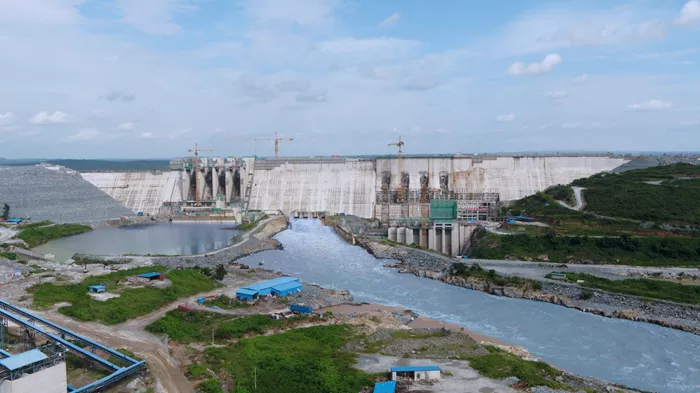Nigeria’s power sector continues to grapple with inefficiency and chronic underinvestment, leading to staggering financial burdens on homes and industries. According to Minister of Power, Adebayo Adelabu, a startling 60% of Nigeria’s 2024 federal budget was allocated to purchasing generators and fueling them. This figure highlights a systemic failure in the country’s energy infrastructure, where alternative power sources are a necessity due to unreliable grid electricity.
The situation is dire: an estimated 92 million out of Nigeria’s 200 million residents lack access to electricity, perpetuated by distribution companies notorious for arbitrary billing practices and inadequate service delivery. The Nigerian Electricity Regulatory Commission reports a staggering shortfall of over seven million prepaid meters, exacerbating consumer frustration and financial strain.
At a mere 3,500 megawatts, Nigeria’s power generation capacity falls drastically short of the required 32,000MW needed to adequately power homes and industries, as outlined by the Association of Nigeria Electricity Distributors. In stark comparison, regional counterparts like South Africa and Egypt boast capacities exceeding 58,000MW.
The financial implications are staggering. Minister Adelabu revealed at the 2024 Nigerian Oil and Gas Conference that Nigerians spent a colossal N16.5 trillion in 2023 on self-generated power, eclipsing more than half of the nation’s total budget for the year. This expenditure underscores a critical misallocation of resources that could otherwise spur transformative economic growth, now siphoned away due to reliance on imported fuel and inefficient generators.
The repercussions are manifold. Beyond perpetuating darkness and economic inefficiency, reliance on generators incurs an additional 40% cost for manufacturers, hindering competitiveness in global markets. Reports indicate that between 2014 and 2022, manufacturers spent approximately N783 billion on self-generated electricity, further straining economic viability.
Despite efforts to privatize components of the power sector in 2013, chronic issues persist. The national grid continues to collapse intermittently, exacerbating public frustration and necessitating government subsidies totaling N1.52 trillion over eight years. Recently, the cancellation of subsidies for Band A customers aimed to alleviate some financial strain, but fundamental issues remain unresolved.
Moving forward, urgent reforms are imperative. Swift privatization of remaining sector components, coupled with stringent metering deadlines for all consumers, is crucial to bolster revenue streams and attract much-needed investment. With Nigeria boasting 33% of Africa’s total gas reserves, excuses of gas shortages contributing to grid instability ring hollow, underscoring governmental inertia in leveraging existing resources for sector revitalization.
The path ahead requires bold regulatory frameworks to entice foreign direct investment, vital for the sector’s rejuvenation. Minister Adelabu’s call for $10 billion over the next decade highlights the scale of investment needed to modernize generation, distribution, and transmission infrastructure. Without decisive action, Nigeria risks further economic stagnation and societal hardship, reinforcing the urgent need for comprehensive energy reform.
Related topics:
- France Sends 41 Power Generators To Kharkiv And Chernihiv Amidst Energy Infrastructure Damage
- Diesel VS Petrol Generators: Which Is Better For Your Needs?
- The Role Of Solar Generators In EV Charging
- Accelera and GAIL Collaborate to Boost Green Hydrogen Production, Transport, and Storage in India
- Holtec Seeks NRC Approval for Sleeving Technique to Repair Palisades Steam Generators
- Nigeria Spends N16.5 Trillion on Fuel and Generators in 2023, Minister Adelabu Reveals
- Kemijoki Oy Partners with Caverion to Manage Hydroelectric Plants in Southern Finland
- Hero Future Energies Opens Green Hydrogen Facility in Andhra Pradesh

